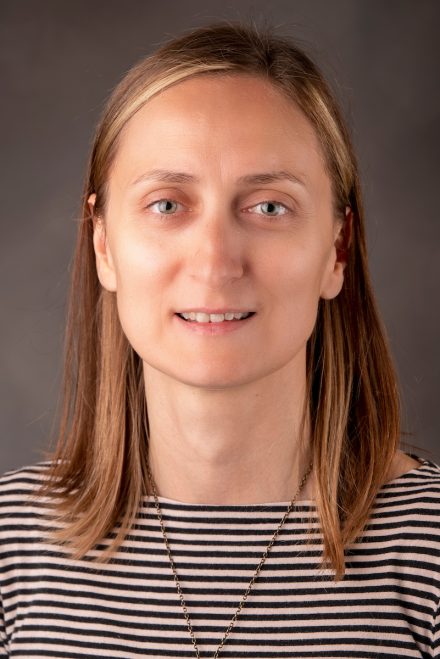Svetlana Nepocatych, faculty fellow for wellness and well-being shares her efforts in faculty development and the importance of both student, and faculty and staff wellness.
Svetlana Nepocatych, faculty fellow for wellness and wellbeing, believes that a faculty member who is well is better equipped to positively impact the well-being of students. This ideology drives her work as a fellow, inspiring research and programming for faculty development surrounding wellness.

Nepocatych’s background in exercise physiology and nutrition brings a unique perspective to her role and serves as a solid foundation to wellness. From this foundation, she is able to build upon the concept of wellness and implement a holistic approach that acknowledges the interconnectedness of various facets of well-being, including emotional, financial and social, within the academic setting.
Continuing to build upon her strong foundation, Nepocatych works with wellness pedagogy, or evidence-based strategies, to be implemented in the classroom. Through these efforts, she hopes to contribute to the university’s goal of creating a culture of wellness, which is named in the “Thrive” theme of the university’s Boldly Elon 10-year strategic plan. To implement wellness pedagogy, Nepocatcyh collaborates with several departments and organizations across campus to execute and assess initiatives that infuse wellness pedagogy.
She also facilitates interdisciplinary dialogue and knowledge exchange by partnering with departments such as the Center for Engaged Teaching and Learning and the Center for Design Thinking. One major initiative that illustrates the interdisciplinary dialogue spearheaded by Nepocatych is the Faculty Scholars Program, aimed at equipping faculty members with tools to integrate wellness pedagogy into their teaching practices. The program included 10 faculty participants who set goals for how to add wellness pedagogy to their course curriculum. Participant goals can include evidence-based practices, such as supporting language to syllabi, inclusive assignments and course design. The program also includes pre-and-post assessments to gauge the impact.
Through initiatives such as the Faculty Scholar Program and other workshops and programs such as the ThriveWell health intervention program, book discussions and tailored programs, she empowers faculty and staff to cultivate supportive learning environments that prioritize well-being. However, before implementing wellness pedagogy in the classroom, Nepocatych believes that wellness practices and behaviors must first begin with faculty and staff. She highlights the importance of prioritizing faculty and staff wellness as a foundational component to creating a culture of well-being within the university community.
“Faculty wellness and well-being is essential not only for the students but for the whole community because burnout leads to disengagement. It could be stated that if we don’t feel organizational care, it is really hard to move forward,” Nepocatych said. So it’s imperative to acknowledge and identify ways to support faculty, staff, or students to contribute to that culture of wellness.”
She continued expressing how this mindset also contributes to becoming a role model for students in how to be stewards of their wellness journey.
“Because we live in a culture that thrives on busyness, we don’t always model healthy work-life balance to our students continuing to fuel the behavior. It’s important to empower and encourage students to engage in conversations and take action to resist these pressures,” Nepocatych said.
As Nepocatych looks toward the horizon, she hopes that she will continue to implement programming that strives to cultivate a wellness culture that supports faculty development and wellness. Additionally, she aspires to establish long-term initiatives such as a Wellness Pedagogy Institute that would offer immersive experiences to further embed wellness practices within academia.


